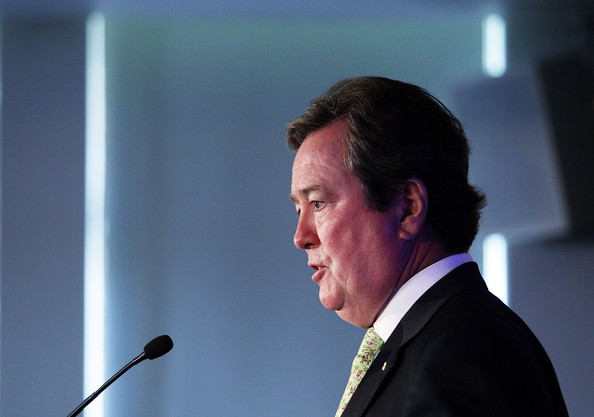Scheduled Website Maintenance
We’re currently in the process of moving to a new and improved server environment. During this transition, the website may experience brief interruptions or temporary outages.
We appreciate your patience while we complete this upgrade. Service will return to normal shortly, with improved performance and reliability.
Thank you for your understanding.
The twittersphere was abuzz this morning with rumours that head honcho of the ARU, John O’Neill, would be stepping down from the ARU.
Those rumours can now be put to rest as it can now be confirmed that O’Neill will be standing down from his role as CEO and Managing Director as of October 31 with Deputy Chief Executive Matt Carroll to act in the role of CEO whilst a global search is undertaken for a replacement.
O’Neill was expected to stand down in 2013 but that date was brought forward with O’Neill stating that his current age combined with the workload in his other role with Echo Entertainment contributed to his decision to leave the ARU.
O’Neill won’t be lost to rugby completely and will continue in his roles as ARU delegate to the IRB and on the board of the Rugby World Cup Ltd.
O’Neill’s resignation brings to an end his second stint in charge of the ARU. His first period in charge took in some important developments in Australian rugby including the commencement of professional rugby.
In that same time Australia had a purple patch of form and held the Bledisloe Cup and also secured the World Cup in 1999.
2003 saw Australia host the World Cup which enabled the ARU to strengthen it’s finances and O’Neill then left the ARU in 2004 to take up a position with the FFA.
2007 saw O’Neill return to the ARU and one of his first pieces of business was to abandon the ARC due to the high costs involved in staging the tournament.
2008 saw what many thought was a coup when Robbie Deans was installed as Wallabies coach with the main objective of taking the Wallabies to the World Cup and bringing home the Webb Ellis cup.
In the leadup to the tournament in New Zealand, O’Neill made the decision to extend Deans’s tenure until after the British and Irish Lions tour in 2013 despite the World Cup result still to be known.
During his farewell speech O’Neill referred to some highlights during his latest time in charge including the introduction of the Melbourne Rebels into Super Rugby, the inclusion of Argentina in The Rugby Championship and the bigger say that Australia gets when the IRB meet.
There have been some rocky moments during his second time in charge – and not just dealing with Rocky Elsom either – it will be interesting to see where the ARU heads with an important period for Australian rugby coming up in the next 12 months.

